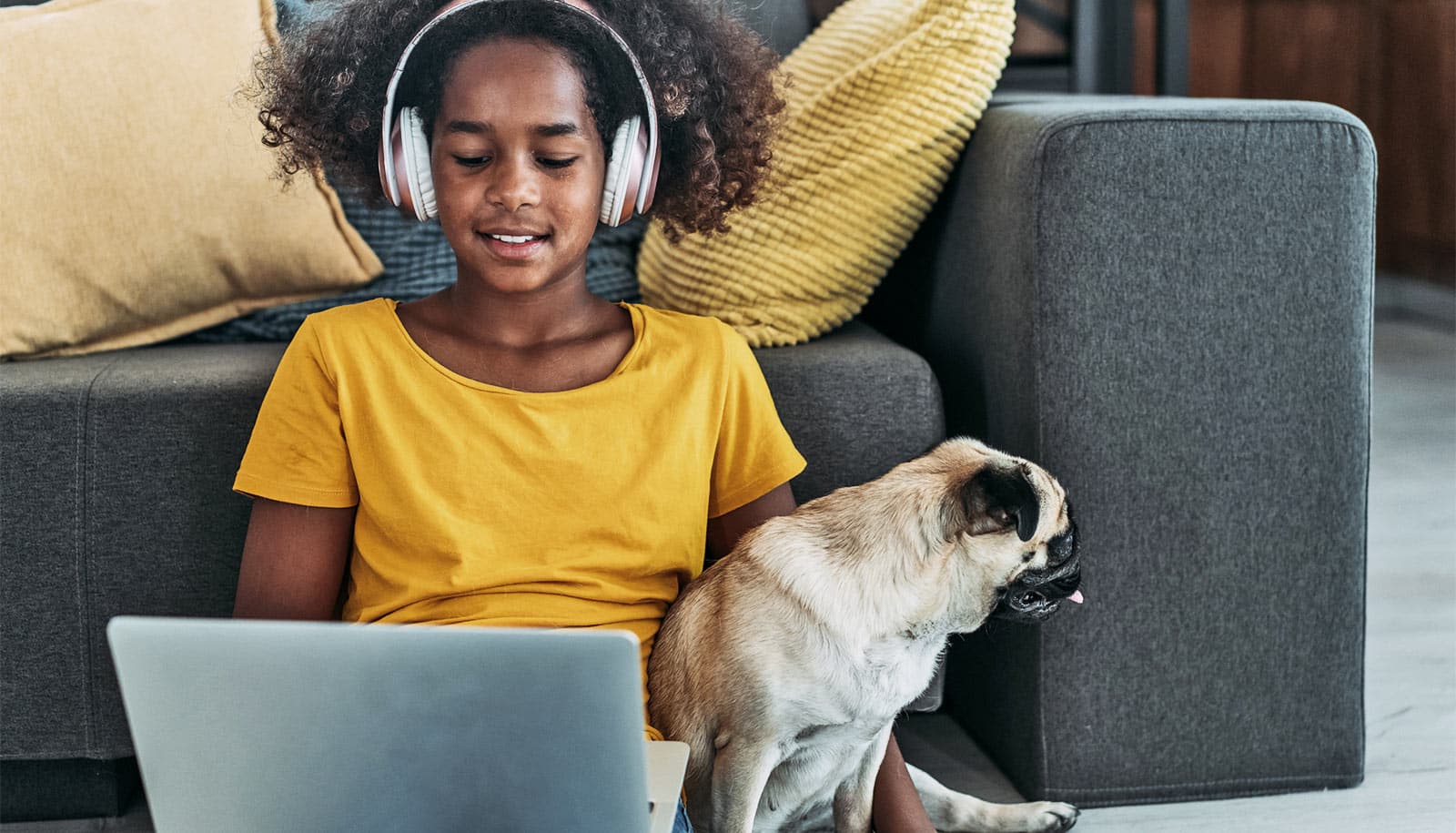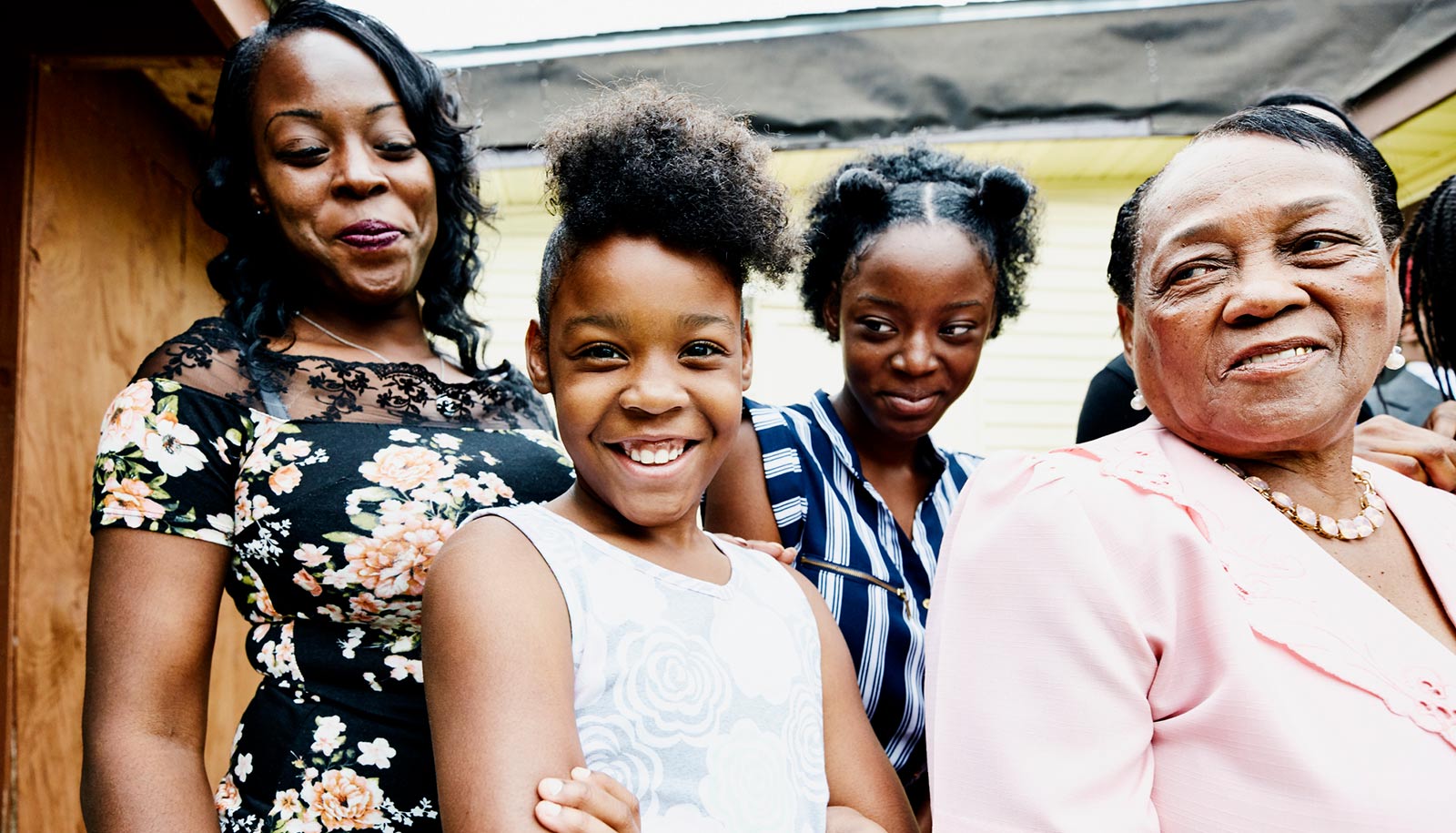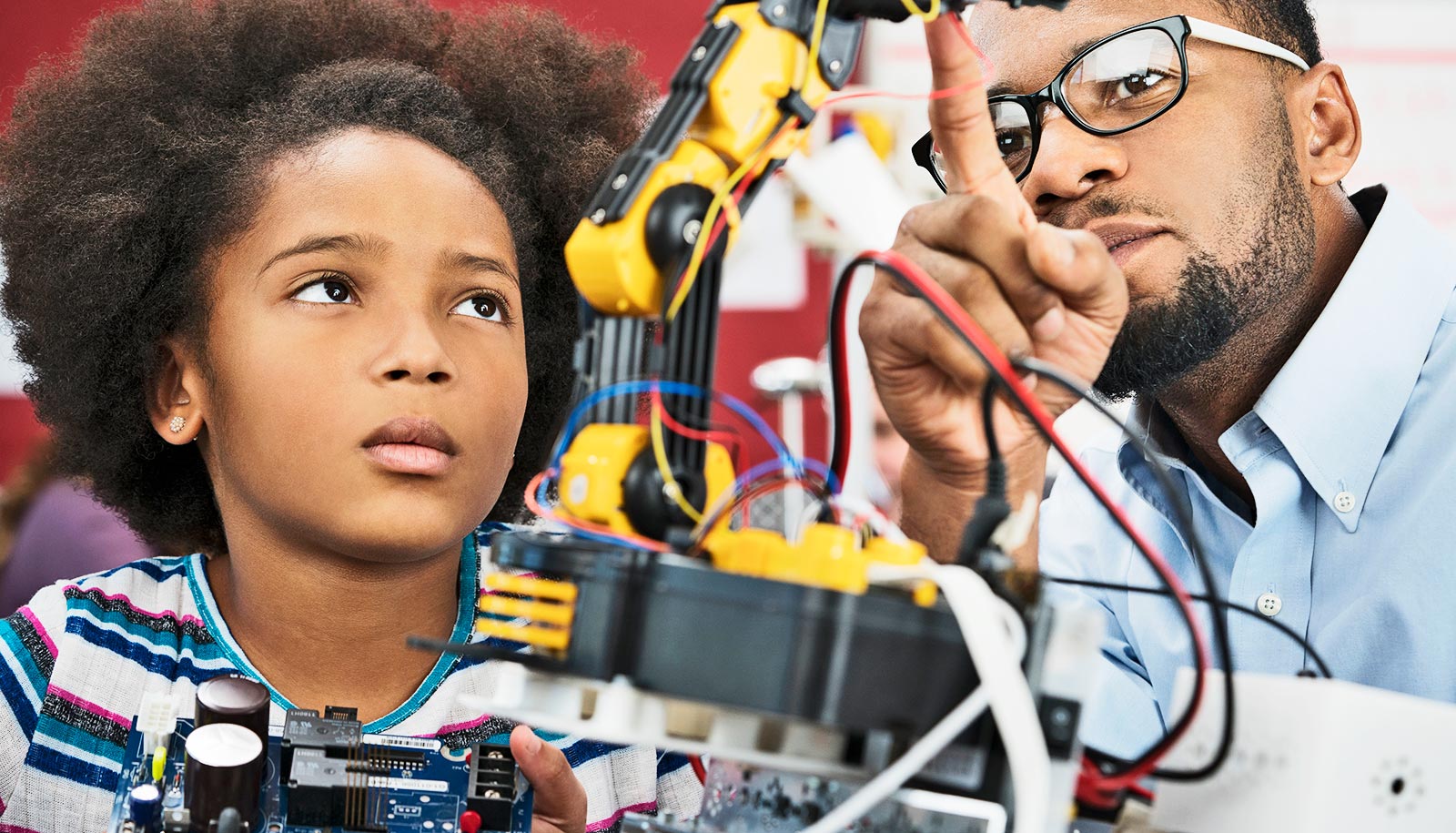An after-school program called Black Girl Magic Crew can help Black girls feel encouraged and supported, a new study shows.
As they try to find their place in school and society, Black girls can face additional challenges including behavioral double standards, excessive discipline, and other subtle and not-so-subtle forms of discrimination, says Seanna Leath, an assistant professor of psychological and brain sciences at Washington University in St. Louis.
That struggle has caught the attention of educators, psychologists, and other advocates who want to help all students reach their full potential.
“No matter how it’s different or it compares to somebody else’s definition of being a Black girl, you get to express your own definition of it.”
In a new study published in the Journal of Black Psychology, Leath and coauthors explore the benefits of the program designed by Black women and girls.
“It’s critical Black girls have validation and multiple spaces where they feel seen,” Leath says. “Black girls should be able to receive the education they deserve to set themselves up for the future, whether that’s working, going to college, or exploring the world in other ways.”
Psychologist Misha Inniss-Thompson established the Black Girl Magic Crew program in 2018 during her time as a graduate student at Vanderbilt University. Inniss-Thompson, lead author of the new study, is now an assistant professor at Cornell University. Jamelia N. Harris, a researcher with the Justice + Joy National Collaborative, was also a coauthor of the study.
The study featured interviews with 16 participants in the program based at a Tennessee high school. The girls, ranging in age from 15 to 18, indicated the Black Girl Magic Crew made them feel “safe” and “comfortable.” Those mindsets can be hard to come by, Leath says, especially among Black girls who experience misogynoir (misogyny against Black females) or other forms of anti-Black girl violence in school. One 16-year-old called the program “a place to express your Black girlness in all of its glory.
“No matter how it’s different or it compares to somebody else’s definition of being a Black girl, you get to express your own definition of it,” the teen told researchers.
As Leath explains, the program is designed to foster a sense of community, belonging, and safety. Participants met after school for an hour and a half twice a month. Guided by Inniss-Thompson, they discussed stereotypes of Black girls and women, worked on group art projects, and shared songs, shows, and social media posts that resonated with their lives.
“It seems simple in a way,” Leath says. “They’re just talking about things that adolescents talk about, but they’re doing it in a space that is uplifting, where their lives are the focal center of the program and they’re invited to show up as authentically as possible—whatever that means to them.”
A 2023 study published in the American Journal of Psychiatry found suicide rates among Black women and girls ages 15 to 24 have more than doubled over the last two decades. Teenage Black girls are also one of the fastest-growing populations of students facing suspension and expulsion, Leath says.
“They’re being disciplined at rates higher than we’ve seen in the last two decades. They’re punished for talking back and being viewed as disrespectful and defiant, even if they’re advocating for themselves or pointing out that white girls can do the same things without getting into trouble.”
While the Black Girl Magic Crew program is limited to a single high school, Leath notes there are similar options in the St. Louis area such as Girls Inc., a leadership program with chapters across the country. She hopes her research will help inspire funding for similar outreach efforts.
“Schools often don’t have the money to facilitate multiple extracurricular programs for specific groups of students, so it’s up to outside organizations to initiate and maintain these programs,” she says.
Leath’s involvement with the Black Girl Magic Crew connects with her broader interests in the psychology of gendered racial socialization and the cognitive and emotional processes that make it possible to heal from racial trauma and systemic oppression.
“My work focuses on the importance of identity development and exploration within family and school settings,” Leath says. “That’s why I see something critically meaningful with the Black Girl Magic Crew. It’s a space where Black girls are allowed to dream and think about their purpose.”



